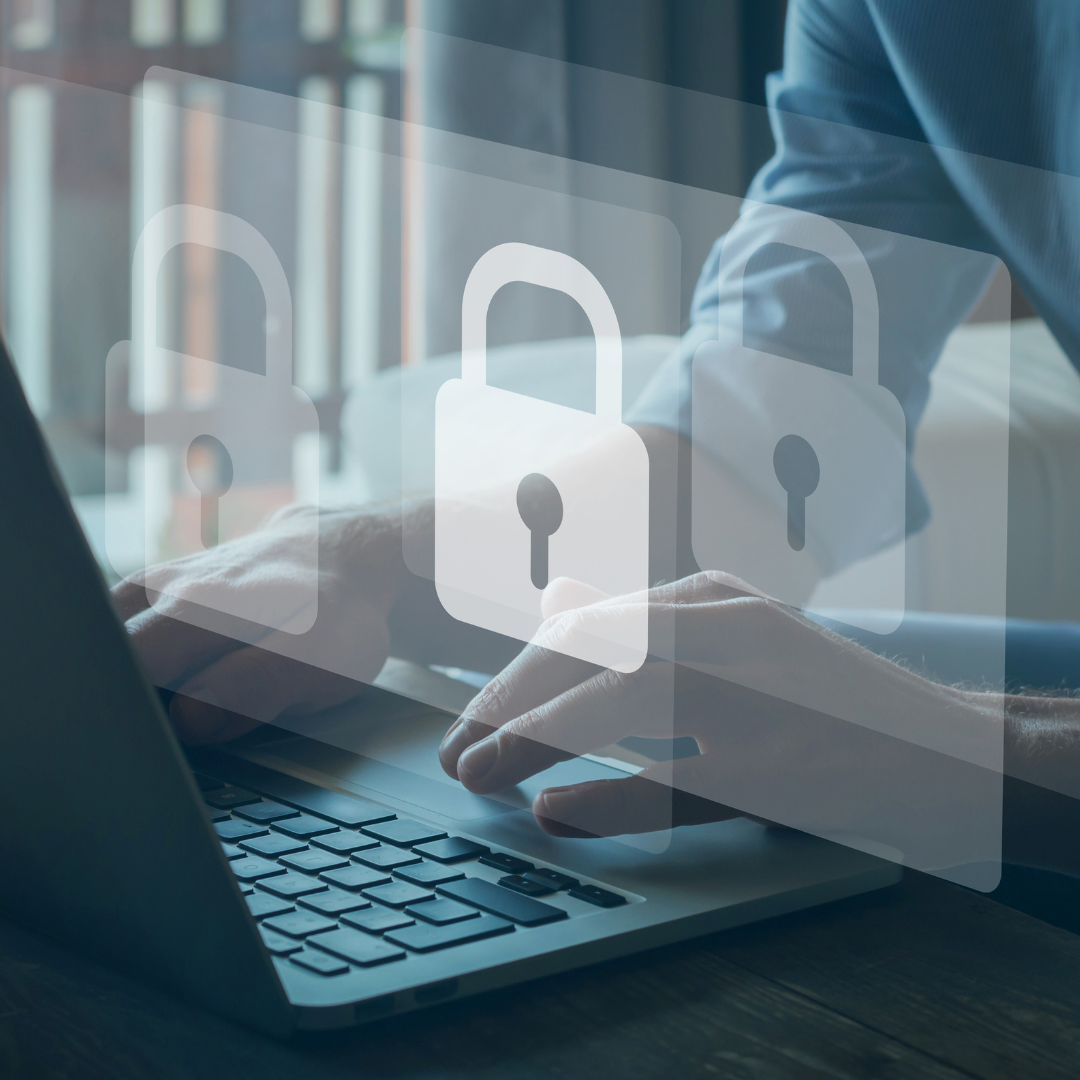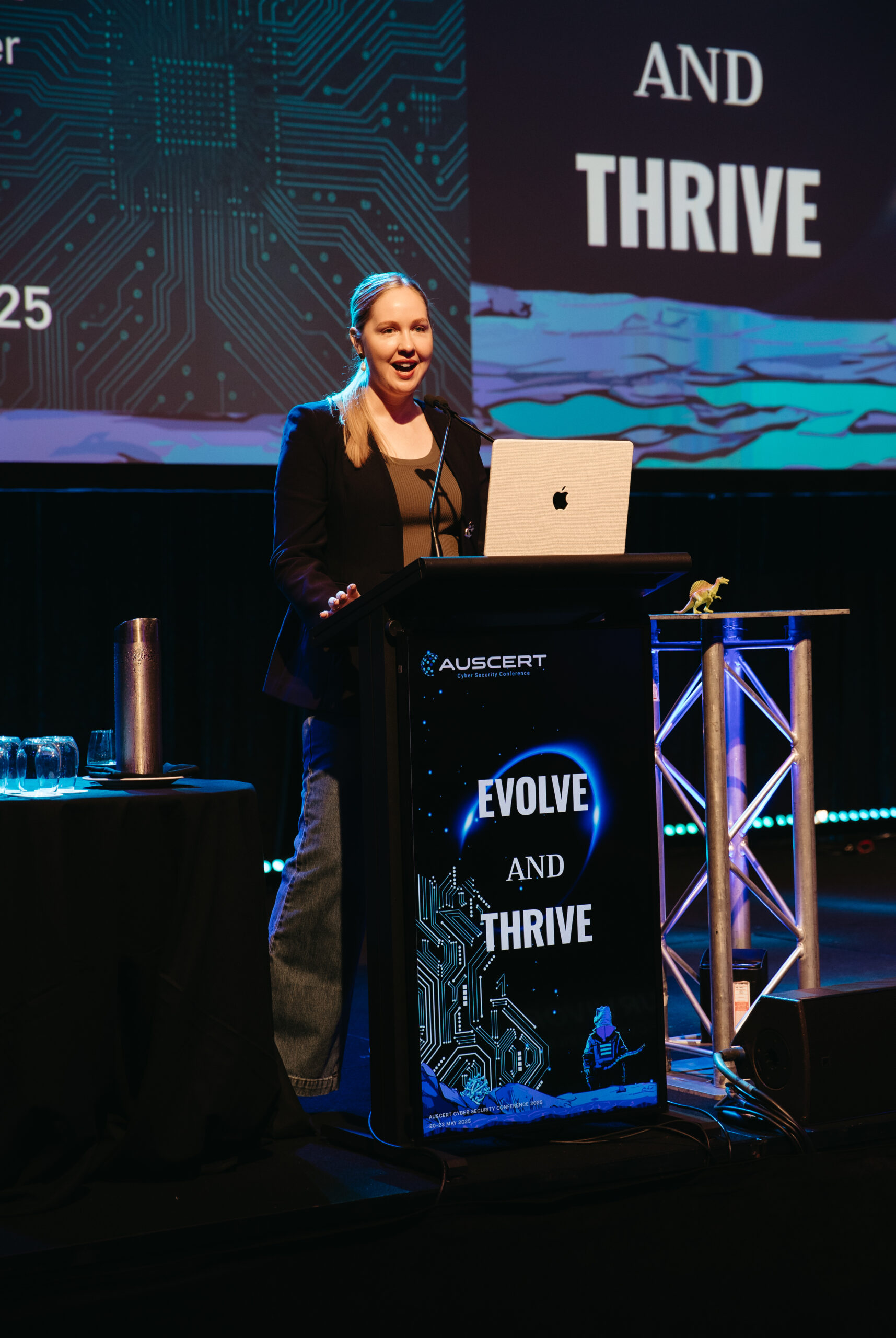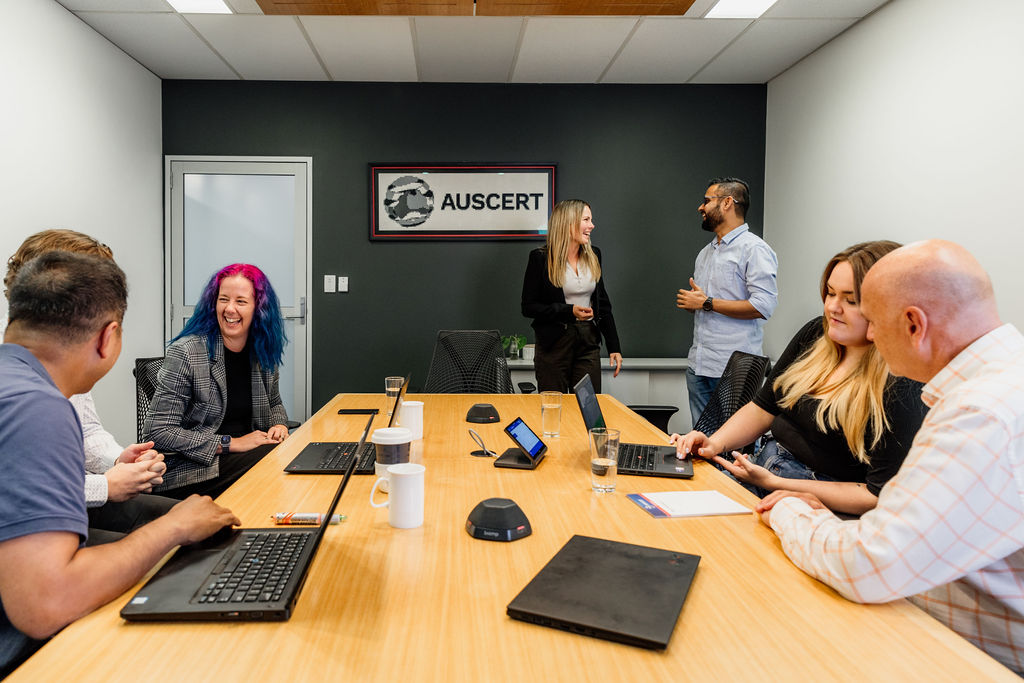15 Oct 2020
Blogs
AUSCERT2020 Member Organisation of the Year Winner
AUSCERT2020 Interview: Leigh Vincent from Federation University Australia
We recently had the pleasure of chatting with Leigh Vincent from Federation University Australia who won the AUSCERT Member Organisation of the Year for 2020. Leigh opened up about what it is like to be an AUSCERT member and how Federation University is dealing with new cyber security issues.
Can you start by telling us about your professional career?
I have been at Federation University Australia (formally known as the University of Ballarat) for about 16 years in a cyber security role. This role has developed over the years and last year, we officially doubled our team, so now there are two of us!
While working at Federation University, I have gone through extensive training in incident handling and response, web application, penetration testing, and digital forensics and analysis. Having been a one-person team for so long, I was often in the position where I needed to provide the resources and support to University staff myself. There have been many years where the University’s budget just did not have enough room to stretch when it came to security. During this time, we could not justify hiring support from outside organisations when I could upskill and undergo training myself.
I’m sure many would agree that cyber security in the university sector is a very interesting beast to work with. This was actually my first role working in security as I had previously worked in a system network administrator role. Since moving into security, I’ve enjoyed almost every moment.
How long has Federation University been an AUSCERT Member?
Federation University has been a member for as long as I have worked there, so at least 16 years. Personally, I have attended several of AUSCERT’s conferences since 2004. The highlight is always having the opportunity to network and catch up with people over the conference period.
What value do you get out of the on-going AUSCERT membership?
In my experience, I would say the advice that the AUSCERT team and other members provide is invaluable and having people there that you can bounce ideas off makes resolving an issue much easier. Back when I was a one-man-team, I went on long-service leave and AUSCERT acted as the primary point of contact for the University if issues popped up. So both at a personal and professional level, the AUSCERT membership has been very beneficial.
Speaking of your membership… Congratulations on winning the Member Organisation Of The Year award! What does winning this award mean to you?
It was a complete surprise! I had to read over the email a couple of times before I realised that we had won. Winning this award is not something we had thought about, we often just continue to go about our work every day, but the acknowledgement means a lot. Receiving that recognition, especially as a two-person cyber security team just shows that people really do take notice of you and how you contribute to the industry.
If you had some advice for some other AUSCERT members, what would you say?
The biggest piece of advice I could give would be get involved. Take the time to interact with AUSCERT and its members—it is a valuable industry tool. As the ‘good guys’ in cyber security, we need to work on communicating more. We know the ‘bad guys’ are great at communicating and that is why they are always one step ahead of us. Ultimately we are all fighting the same fight so use the tools provided by AUSCERT (such as the Slack channels) to get involved, communicate and most of all keep an ear to the ground.
Have you had any cyber security challenges this year, and how have you addressed this?
Money has certainly been the biggest challenge, there is no denying that the education sector has taken a huge financial hit recently. We have also had to alter our focus to keeping tabs on all the remote workers and moving the University’s systems online very quickly. By making these quick changes, we have had to reassess some of our security restrictions to ensure a smooth and easy transition to working online for staff and students. Our focus has had to be on delivering quickly and trying to keep everyone safe when they are not inside our walls anymore. We control less when people are working from home, so we have had to encourage people to ask questions relating to their home security and support them where possible.
Because we have made the switch to online for all course material, the push is now that we should keep it all online and maintain those platforms. However the challenge is ensuring that security can be enhanced and maintained to meet what will become a permanent method of content delivery to students and capabilities for staff to work from home as required going forward. Alternatively, we could also create something parallel that is safe and secured correctly, not just a platform that can ‘make it work’.
What do you see as some of the main cyber threats in today’s society and their accompanying risks?
Personally, I see social engineering as one of the biggest risks in cyber security today. It is a very real issue and we see it constantly. However, we can only overcome it by increasing user awareness and education—without this it can be very difficult to fight. Until we can get on top of that and educate users to make decisions themselves, it will inevitably remain a problem.
What is some advice you would give to organisations and other IT cyber security professionals?
Talk and share with one another. We are all fighting the same fight and facing the same challenges. We might be from different organisations and have different technology, but ultimately, we are all fighting the same enemy.



